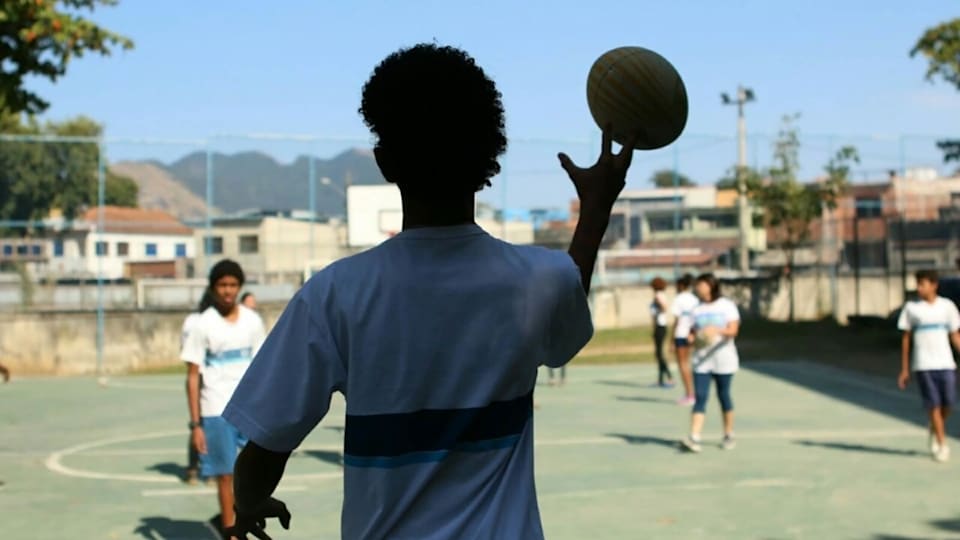
Though neither of Brazil’s teams progressed beyond the group phase at what was the first Olympic rugby tournament in 92 years, the sport is now the nation’s fastest-growing team game.
Since Rio 2016, Brazilian rugby has attracted nearly 9,000 new registered players across the country, taking the total figure to 16,610, with over 5,200 of them taking part in official competitions. In the nation’s schools meanwhile, some 160,000 youngsters now play rugby on a regular basis.
As Mauricio Migliano, Head of Development at the Brazilian Rugby Confederation (CBRU), explained, those figures reflect the legacy of rugby’s return to the Olympic fold, particularly at school level: “The biggest effect has been educational. Thanks to the significant exposure given to rugby at Rio 2016, PE teachers have shown greater interest in talking about the sports that figured on the Olympic programme.”
As Marilene Gomes, a rugby coach at the Anchieta Grajaú School in Sao Paulo, added, youngsters are also increasingly keen to get their hands on the oval ball: “Our students are taking a greater interest in the sport thanks to Rio 2016. We took some of them to the match between Brazil and Chile at the Games, which let them see rugby in a whole new light.
“They were thrilled, and in finding out about the players they could see that it is possible to play rugby in Brazil, despite the obstacles.”
Explaining theirreaction to the rough and tumble of the game, she added: “Once they began to understand it, they liked it. And now they’re passionate about it, even more so than about football.”
The foundations for the growth in the sport’s popularity were laid before Rio 2016.
Launched in March 2015, the Brazilian Rugby Federation coordinated the IMPACT Beyond Rio 2016 programme in Rio de Janeiro in collaboration with World Rugby, the Brazilian Olympic Committee, the City of Rio and the Rio 2016 Organising Committee, with the aim of ensuring a post-Games legacy for rugby was intact. The IMPACT Beyond Rio 2016 programme has seen player, coach and match official numbers rise steadily across the country.
Providing more details on the work the CBRU has been doing to promote the game nationally, Migliano said: “We began a couple of years before the Olympics, appointing rugby ambassadors, whose job it is to seek out partners and schools to raise the game’s profile.
“We’ve also provided sports kit and equipment, introduced tag rugby at schools and set up rugby clinics to let teachers see how to use the sport in schools. We’ve trained more than 2,000 teachers in Rio alone, one of whom even set up his own club to meet demand among youngsters.”
Our students are taking a greater interest in the sport thanks to Rio 2016
CBRU projects such as Rugby Citizen and Sport For Peace are playing their part in getting rugby on school PE curricula. As Gomes explained, there is a very good reason why her school is just one of many to embrace the sport: “It has values such as respect, togetherness, teamwork, passion, integrity and discipline. We are now working on all those sports-related values, together with the school’s own values.”
Migliano acknowledged that the next step is to ensure rugby’s growth continues: “There’s no real transition from schools to clubs, and that’s because clubs are still relatively new and lack facilities and people with knowledge. In Rio, for example, people train on the beach, which is far from being ideal.
“We’ve got real enthusiasts setting up clubs, but they don’t yet see them as businesses that need to attract more players, sponsors and the like. That’s how we can help the sport to grow across the country.”
The will to ensure that growth is there, however. With a view to pointing prospective players in the right direction, the CBRU’s website features a useful interactive map detailing all the clubs sprouting up across Brazil, while national and global rugby development programmes will continue to be rolled out, giving the country’s rugby players every chance of making headway in Brazil.